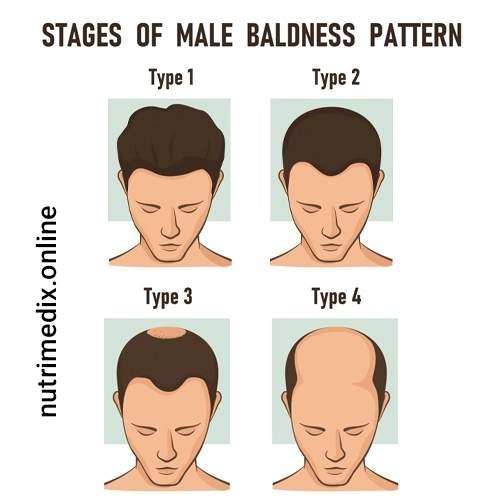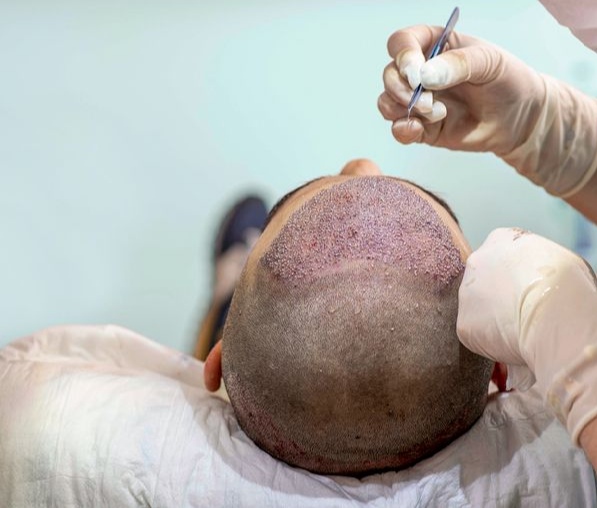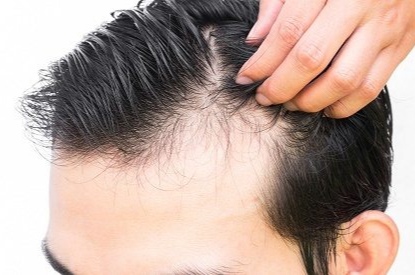Understanding Hair Loss, its Types, Causes, Symptoms, Statistics and Shock Hair Loss After Hair Transplant
What is Hair Loss?
Hair loss, also known as alopecia, refers to the partial or complete loss of hair from the scalp or other parts of the body. The baldness, hair fall, or alopecia can occur in many forms and affect anyone. Here’s the relation of important aspects:
Types of Hair Loss
- Androgenetic Alopecia: Commonly known as male or female pattern baldness, often hereditary.
- Alopecia Areata: An autoimmune condition causing patchy hair loss.
- Telogen Effluvium: Temporary hair shedding often triggered by stress, illness, or hormonal changes. hormonal imbalances
- Traction Alopecia: Hair loss due to tight hairstyles or excessive styling. tight hairband.
- Trichotillomania: Trichotillomania is a psychological condition where individuals have an irresistible urge to pull out their own hair, leading to noticeable hair loss.
- Nutritional Deficiency Hair Loss: Lack of essential nutrients like iron, zinc, biotin, or protein can lead to hair thinning and shedding.

Symptoms of hair loss
- Thinning hair :You might notice your hair getting thinner, especially on the top of your head.
- Receding hairline : For men, the hairline may gradually move back, creating a more visible forehead.
- Bald patches :You might find small or large bald spots appearing, either on your scalp or other parts of the body.
- Loosening hair :You may notice more hair coming out when brushing or washing your hair.
- Wider parting: Your usual hair part might start looking wider as more hair falls out around that area.
Causes of hair loss
It can be caused by various factors such as genetics, aging, hormonal changes, medical conditions, medications, or external factors like stress and poor nutrition.
- Genetics: Family history is a key factor.
- Hormonal Changes: Conditions like thyroid disorders or hormonal fluctuations./ Imbalance due to sedentary lifestyle
- Nutritional Deficiencies: Lack of essential nutrients (e.g., iron, protein).
- Medications: Certain drugs, including those for cancer and depression. psychosis.
- Stress: Both physical and emotional stress can contribute in hair fall..
- Health Conditions: Scalp infections or fungal infections like dandruff or autoimmune diseases.
- Hormonal Imbalances: Changes in hormone levels, such as those caused by thyroid disorders, pregnancy, or menopause, can disrupt hair growth cycles, leading to thinning or shedding
- .Autoimmune Conditions: Diseases like alopecia areata, where the immune system mistakenly attacks hair follicles, can cause sudden and patchy hair loss.
Hair loss after hair transplant
Treatment Options
- Medications: Minoxidil A topical solution for both men and women. Finasterid androgen related an oral medication for men that reduces DHT levels.
- Hair Transplant Surgery: Redistributing hair follicles for a fuller appearance.by aesthetic physician or surgeon in aesthetic clinic
- Laser Therapy: Low-level lasers light may stimulate hair growth.
- PRP Therapy Using your own blood to promote hair follicle activity.
- Platelet-Rich Plasma (PRP) Therapy: This treatment involves injecting your own blood plasma, rich in growth factors, into the scalp to stimulate hair growth and repair damaged follicles.
- Low-Level Laser Therapy (LLLT): A non-invasive procedure that uses red light to stimulate hair follicles, improve circulation, and encourage hair regrowth.
- Hair transplant surgery It provides permanent results by transferring healthy hair follicles from dense areas to balding regions on the scalp
- FUT and FUE Hair restoration techniques are popular hair transplant methods that can address severe hair thinning or baldness.
- A successful hair restoration surgery can significantly improve self-confidence and overall appearance for individuals dealing with hair loss
- Many people opt for hair loss surgery as a permanent alternative to topical treatments and medications for hair regrowth.
- Advances in hair loss surgery techniques have made recovery quicker and results more natural-looking than ever before.

Prevention Tips
- Maintain a Healthy Diet: Focus on balanced nutrition with multivitamins and minerals. Essential nutrients https://nutrimedix.online/hair-loss-and-the-2-hair-transplant-method/
- Gentle Hair Care: Avoid harsh chemicals treatments and tight hair styles. tight hairbands
- Stress Management: Engage in stress-reduction techniques. like meditation.
- Nutrient-Rich Diet: Eating a diet high in vitamins like biotin, vitamin D, and zinc can strengthen hair and prevent early shedding.
- Scalp Massage: Regular scalp massages improve blood circulation, promoting healthy hair follicles and reducing the risk of hair loss.
- Consult Professionals: Regular check-ups with a dermatologist for early intervention.
Statistics of hair loss
Here are some key statistics on hair loss:
- Men – About 85% of men experience significant hair thinning by the age of 50, with male pattern baldness (androgenetic alopecia) being the most common cause.
- Women – Around 40% of women experience visible hair loss by the age of 40, often due to hormonal changes, genetics, or stress.
- Global impact – It’s estimated that over 50 million men and 30 million women in the United States alone suffer from some form of hair loss.
- Age factor – By age 35, two-thirds of men experience some degree of hair loss, which increases with age.
- Temporary hair loss – Conditions like alopecia areata, stress, illness, or pregnancy can cause temporary hair loss, affecting up to 50% of individuals at some point in their lives.
Conclusion:
In conclusion, hair loss is a common condition that affects both men and women due to factors like genetics, hormonal imbalances, and lifestyle. Understanding the causes and early signs can help in seeking effective treatments or preventive measures. Whether it’s through medical intervention, lifestyle changes, or natural remedies, addressing hair loss early can lead to better results. If you’re concerned about hair loss, it’s advisable to consult a healthcare provider and routine visits to a dermatologist or aesthetic surgeon for a personalized diagnosis and treatment plan. Don’t ignore hair fall as it further leads to psychological stress.


Very informative